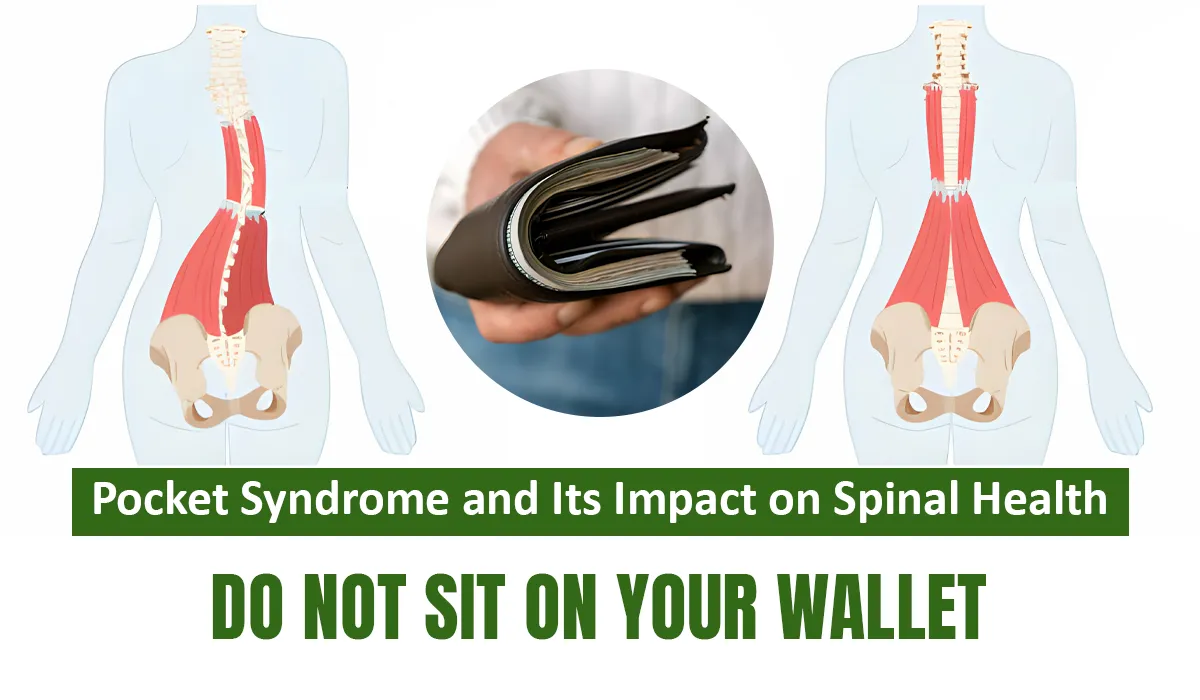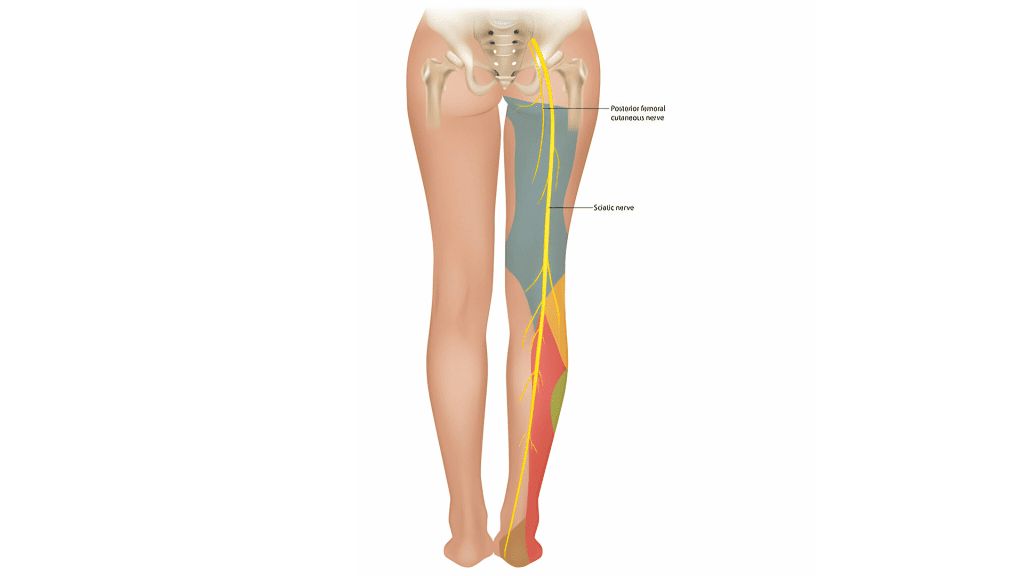
As we navigate the hustle and bustle of modern life, it’s not uncommon to find ourselves constantly on the move, whether rushing to work, running errands, or shuttling between appointments. In the midst of this fast-paced lifestyle, an often overlooked yet significant health concern emerges – Pocket Syndrome. As a senior physiotherapist at Physioveda Medical Center, I feel compelled to shed light on this seemingly innocuous issue that can have profound effects on spinal health, especially when driving.
Understanding Pocket Syndrome
Pocket Syndrome refers to the habit of storing personal items, such as smartphones, wallets, keys, or other objects, in the back pockets of pants. While it may seem like a convenient and harmless practice, its impact on spinal health can be insidious. The act of sitting on uneven surfaces created by these items can lead to imbalances in the pelvis and spine, potentially causing a range of spinal issues over time.

Spinal Issues Caused by Pocket Syndrome
1. Postural Imbalances
One of the primary concerns associated with Pocket Syndrome is the development of postural imbalances. Sitting on a wallet or other items creates an uneven foundation for the pelvis, leading to misalignments in the spine. Over time, this can result in a forward or lateral tilt of the pelvis, placing strain on the muscles and ligaments supporting the spine.

2. Sciatic Nerve Compression
Stashing objects in the back pocket can compress the sciatic nerve, causing pain, tingling, or numbness radiating down the leg. Prolonged compression may lead to more severe conditions, such as sciatica, affecting mobility and quality of life.

3. Muscular Tension and Strain
Uneven pressure distribution from pocket-stored items can contribute to muscular tension and strain. The muscles surrounding the lower back and hips work harder to compensate for the altered posture, leading to discomfort and potential long-term damage.

The Dangers of Stuffed Pockets While Driving
While the implications of Pocket Syndrome are concerning in various scenarios, the dangers are amplified when driving. The confined space of a vehicle, combined with the prolonged periods of sitting during commutes, exacerbates the impact on spinal health. Here are some specific dangers to be aware of
1. Reduced Focus and Reaction Time
Driving demands attention and quick reactions. Discomfort caused by Pocket Syndrome can distract drivers, reducing their ability to focus on the road and respond swiftly to changing situations. This impaired attention poses a significant risk to road safety.
2. Increased Risk of Accidents
A sudden movement or adjustment due to discomfort from stuffed pockets can lead to a loss of control while driving. This increased risk of accidents not only endangers the driver but also poses a threat to other road users.
3. Aggravation of Existing Conditions
Individuals with pre-existing spinal conditions, such as herniated discs or chronic back pain, are particularly vulnerable to the exacerbation of their conditions while driving with stuffed pockets. The added stress on an already compromised spine can result in increased pain and discomfort.

Preventive Measures and Lifestyle Adjustments
1. Empty Pockets Before Driving
The simplest and most effective preventive measure is to empty your back pockets before getting behind the wheel. This ensures a level and supportive surface for the pelvis, minimizing the risk of postural imbalances and discomfort.
2. Invest in Supportive Car Seats
Consider investing in car seats with ergonomic designs that provide adequate lumbar support. Proper seating can significantly contribute to maintaining a healthy spinal posture during extended periods of driving.
3. Regular Stretching and Movement
Incorporate regular stretching and movement breaks during long drives. Simple exercises, such as pelvic tilts and shoulder rolls, can help alleviate tension and promote spinal health.
Conclusion
As a senior physiotherapist, my goal is to raise awareness about the often overlooked yet detrimental effects of Pocket Syndrome on spinal health, especially while driving. By understanding the potential risks and adopting preventive measures, individuals can take proactive steps to safeguard their well-being and ensure a safer and more comfortable driving experience. Remember, a few moments of mindful consideration before hitting the road can go a long way in preserving your spinal health in the journey of life.
